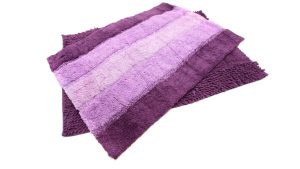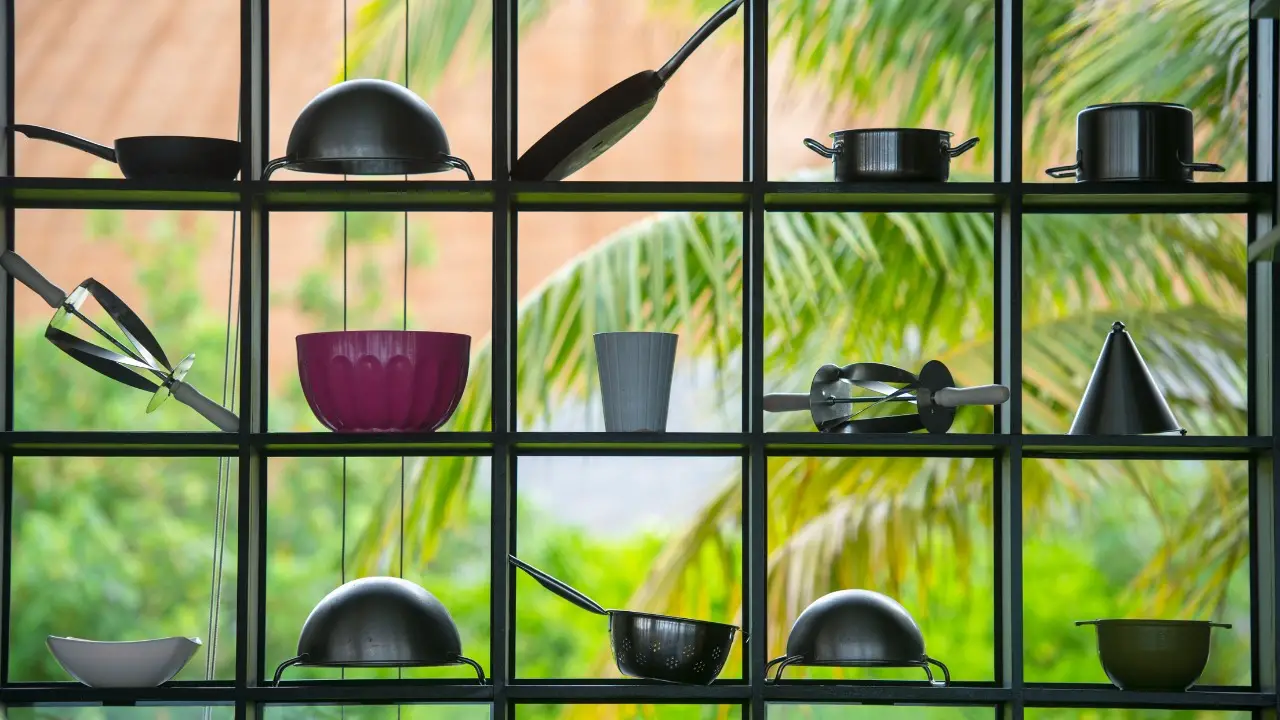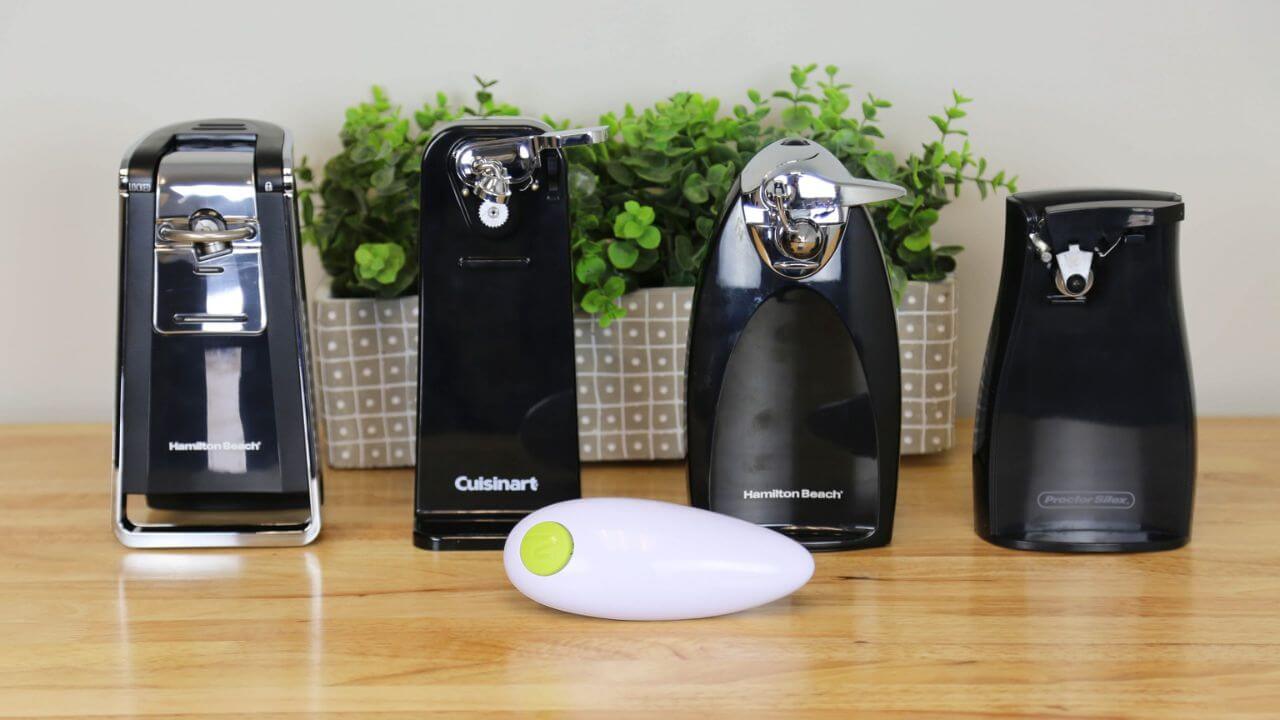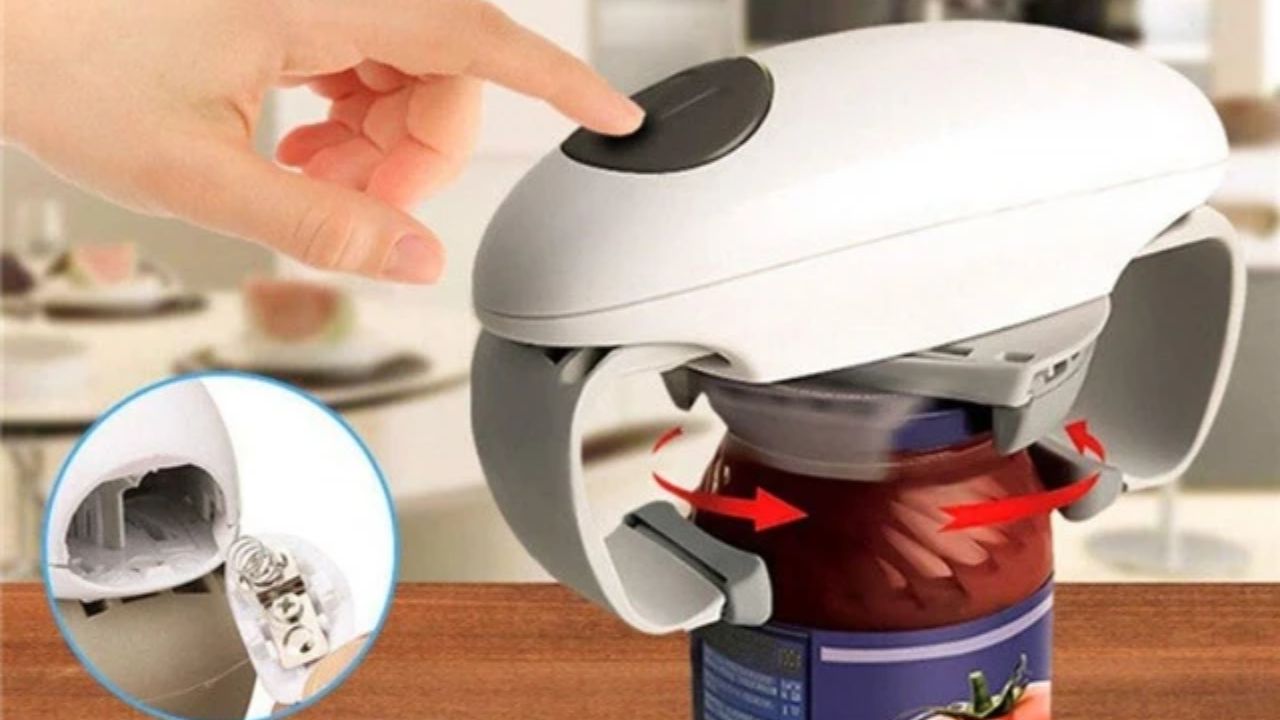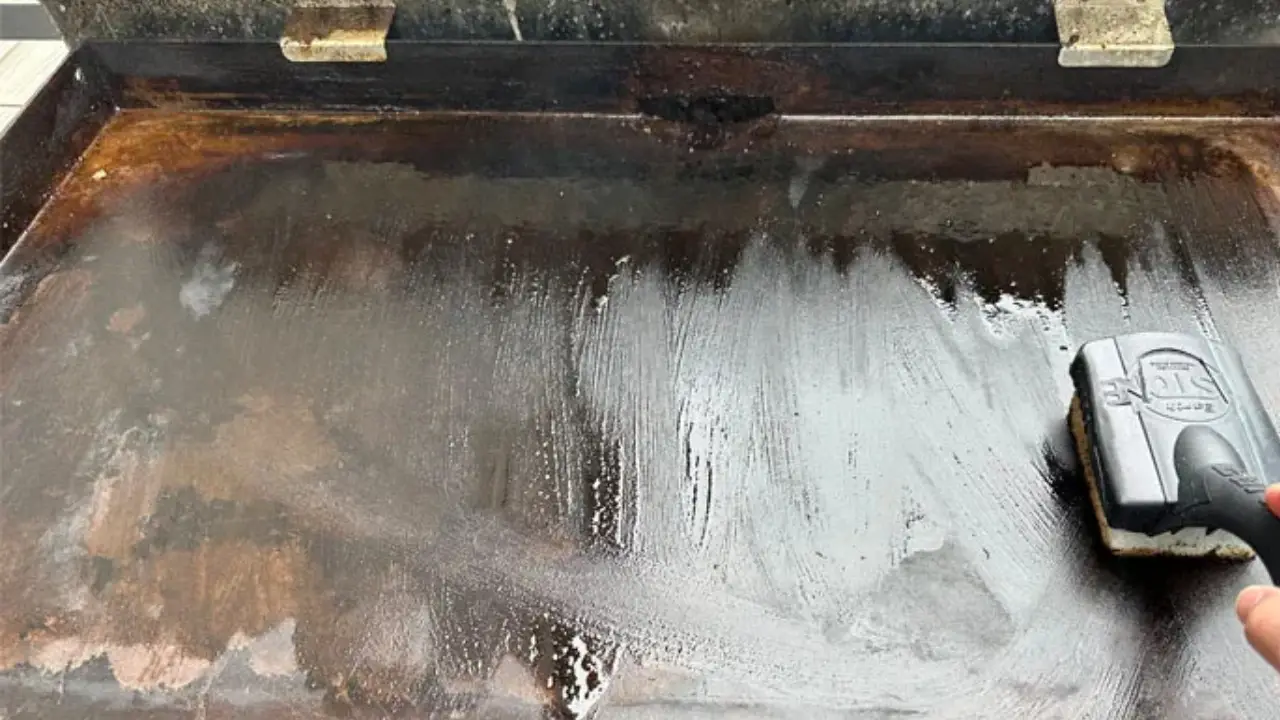How to Remove Rust from Kitchen Knives: Ultimate Guide for Gleaming Blades
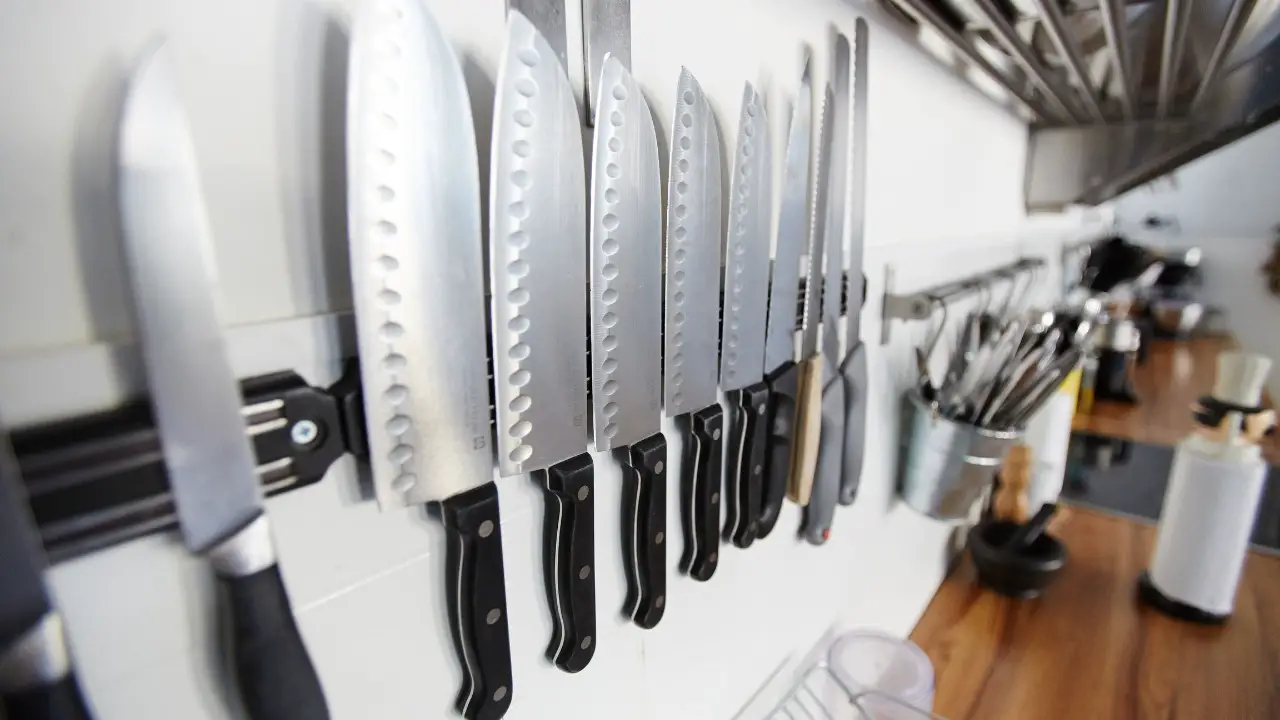
To remove rust from kitchen knives, use a mixture of equal parts water and white vinegar to soak the knives for several hours, then scrub them with a sponge or cloth. Rust can also be removed using a paste of baking soda and water, applied with a soft brush or cloth.
Additionally, a commercial rust remover can be used following the product instructions. Rust can be prevented by regularly wiping knives dry and applying a thin layer of oil. Proper storage in a dry environment can also help prevent rust on kitchen knives.
Maintaining your kitchen knives is essential for their longevity and performance. Rust can degrade the quality of the blades and compromise hygiene. By following a few simple steps, you can easily remove rust and ensure the knives remain in top condition. We will explore effective methods for removing rust from kitchen knives and provide tips for preventing rust in the future. By implementing these techniques, you can protect your investment and maintain the functionality of your kitchen knives.
Rust Removal: Kitchen Knives Care Guide
It is essential to keep kitchen knives rust-free to maintain their performance and durability. Rust can have a detrimental impact on the cutting edge, causing it to dull and making it more susceptible to damage. Regular maintenance is crucial to prevent rust from forming. Additionally, maintaining rust-free knives is important from a hygiene perspective to ensure food safety. When cleaning and storing knives, it is important to use methods and materials that prevent oxidation. By regularly inspecting, cleaning, and drying knives, it is possible to prevent rust from developing, preserving the sharpness and overall quality of the knives.
Identifying Rust On Your Blades
Distinguishing rust from other stains can be tricky, but it’s important to recognize the difference. Rust will often appear as small, reddish-brown spots on the surface of your kitchen knives. When left untreated, these spots can spread, leading to severe deterioration. Inspection and regular cleaning are key in preventing and addressing this issue. Exposure to moisture, high humidity, and improper storage are some of the most common causes of knife rust. Inadequate care and neglecting to dry your knives after use can also contribute to this problem. Understanding these factors is crucial in maintaining the longevity and performance of your kitchen knives.
Supplies For Rust Removal
To remove rust from kitchen knives, you will need white vinegar, baking soda, lemon juice, rust remover gel or rust eraser, rubbing alcohol, steel wool, and soft cloths. Alternatively, you can also use potato, onion, or baking powder as substitutes for commercial rust removers.
How To Remove Rust From Kitchen Knives: Ultimate Guide For Gleaming Blades
To remove rust from kitchen knives, start by gently scrubbing the rusty areas with a mixture of baking soda and water using a soft-bristled brush. Then, rinse the knives with warm soapy water and thoroughly dry them with a clean cloth. Next, apply a small amount of white vinegar to the rust spots and allow it to sit for a few minutes before scrubbing with a new brush. After that, rinse and dry the knives again. Finally, apply a thin layer of food-grade mineral oil to the blades to prevent future rust formation. During the rust removal process, it’s important to wear protective gloves to avoid direct contact with the rust and cleaning agents. Additionally, ensure proper ventilation in the area where you are working with the cleaning solutions. Moreover, avoid harsh scrubbing or abrasive cleaners that can damage the knife’s surface. By following these precautions, you can effectively remove rust from kitchen knives and restore them to their original gleaming condition.
Diy Rust Removal Techniques
Sure, I can help you with that. Here’s the HTML format for the content. “`html To remove rust from kitchen knives, you can use homemade remedies such as lemon juice and salt. Mix lemon juice and salt into a paste and apply it to the rusty areas. Let it sit for a few hours before scrubbing the rust with a brush or sponge. Another effective homemade rust remover is white vinegar. Submerge the rusty knives in white vinegar for several hours, then scrub off the rust with a scouring pad or steel wool. These DIY techniques can help restore the blades of your kitchen knives to their former glory, making them safe and effective for use in your kitchen. “` I hope this meets your requirements. Let me know if you need any further assistance!
Mechanical Rust Removal Methods
When it comes to mechanical rust removal methods, utilizing baking soda and a brush can be an effective technique. Create a paste by mixing baking soda with water and applying it to the rusted areas of the knife, then scrub with a brush to remove the rust. Steel wool and sandpaper can also serve as abrasive options for removing rust from kitchen knives. Gently scrub the rusted areas with steel wool or sandpaper until the rust is eliminated, then wipe the knife clean to reveal a rust-free surface.
Preventative Measures For Knife Care
To prevent rust on your kitchen knives, regularly clean and dry them after use. Use a mild detergent and warm water to remove any rust, then dry thoroughly with a cloth. Apply a light coat of oil to the blades to prevent future rust.
| Preventative Measures for Knife Care |
| Routine cleaning methods |
| It’s important to regularly clean your kitchen knives to prevent rust. Wash them immediately after each use with a mild detergent and warm water, and make sure to thoroughly dry them to avoid moisture buildup. Additionally, avoid putting knives in the dishwasher as the high heat and harsh detergents can damage the blades. |
| Proper knife storage tips |
| Store your knives in a knife block, magnetic strip, or edge guard to protect them from exposure to moisture and other kitchen tools that could cause damage. Be sure to keep them away from areas with high humidity to prevent rust formation. |
| Regular maintenance schedule |
| Establish a maintenance routine for your knives, including honing the blades regularly to ensure the cutting edge remains sharp and free from corrosion. Sharpen the knives at home or take them to a professional for maintenance when needed. |
Troubleshooting Persistent Rust Issues
Removing rust from kitchen knives is essential for maintaining their longevity and performance. If you notice persistent rust on your knives, it may be time for some troubleshooting. Start by assessing whether the rust can be easily removed with household materials or if it requires more professional intervention. Sometimes, severe rusting can render a knife beyond repair. In such cases, it’s crucial to make an informed decision about whether to seek professional help or invest in a new high-quality knife.
Advanced Tools For Maintenance
Investing in knife sharpeners and protectors is crucial for maintaining the quality and longevity of your kitchen knives. Quality knife sharpeners help to keep the blades sharp and the overall performance high. Knife protectors, on the other hand, prevent damage and corrosion, extending the lifespan of your knives. Knowing when to use oil and lubricants is also essential. Applying oil to the blades helps prevent rust and corrosion, particularly for carbon steel knives. It’s recommended to use food-grade mineral oil or specific knife lubricants to maintain the blades’ integrity. By investing in these advanced tools and following proper maintenance techniques, you can effectively remove rust from your kitchen knives and keep them in top condition.
Frequently Asked Questions For How To Remove Rust From Kitchen Knives
How Does Rust Develop On Kitchen Knives?
Rust develops on kitchen knives when they are exposed to moisture and oxygen, causing a chemical reaction that damages the metal surface. This can happen if the knives are not properly dried after use or if they are stored in a damp environment.
What Are The Dangers Of Using Rusty Knives?
Using rusty knives can pose health risks as the rust can contaminate food. It can also affect the knife’s performance, making it less effective for cutting. Additionally, rust can spread and cause further damage to the knife if not properly addressed.
Can Rust Be Removed From Kitchen Knives At Home?
Yes, rust can be removed from kitchen knives at home using simple household items like vinegar, baking soda, or lemon juice. These methods effectively and safely remove rust without damaging the knife’s blade. However, it’s important to follow proper cleaning and maintenance procedures to prevent future rusting.
What causes rust on kitchen knives?
Rust on knives is often caused by exposure to moisture, acidic foods, or a combination of both. Improper cleaning and storage can contribute to rust formation.
How can I prevent rust on my kitchen knives?
To prevent rust, always hand wash and dry your knives promptly after use. Avoid leaving them in a damp or acidic environment, and store them in a knife block or magnetic strip rather than a drawer.
What materials do I need to remove rust from knives?
You’ll need a soft cloth or sponge, a mild abrasive like baking soda or a commercial rust remover, and a food-safe oil for blade maintenance.
Can I use steel wool or abrasive pads to remove rust?
Yes, but use fine-grade steel wool and gentle pressure to avoid scratching the knife. Abrasive pads designed for kitchen use are also a good option.
How do I use baking soda to remove rust?
Create a paste by mixing baking soda with water. Apply the paste to the rust spots, scrub gently with a cloth or sponge, and rinse thoroughly. Dry the knife immediately.
Are there commercial rust removers for knives?
Yes, there are rust removers specifically designed for kitchen tools. Follow the product instructions, and ensure it is safe for food-contact surfaces.
Should I use oil on my knives after removing rust?
Yes, applying a thin layer of food-safe oil, like mineral oil or cutting board oil, helps protect the knife from future rust. Wipe off any excess oil before use.
Conclusion
Removing rust from kitchen knives can be done easily with household items and minimal effort. With a few simple steps, you can restore your knives to their former glory and ensure they are safe to use. By following the tips mentioned you can keep your kitchen knives clean and rust-free for a long time.



